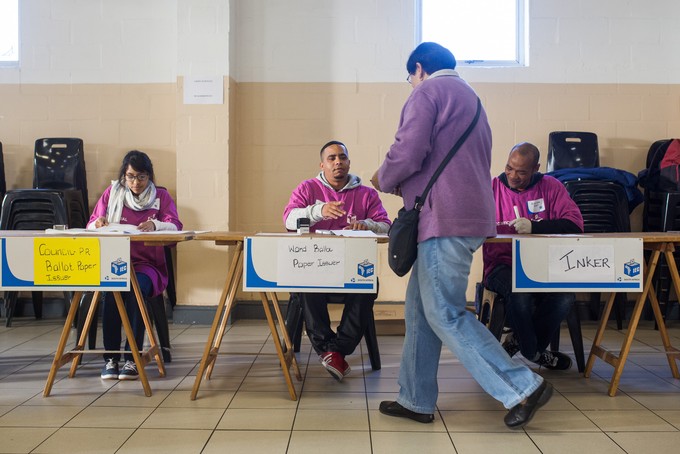
21 April 2023
The author, who works for My Vote Counts, writes: If a donor feels they can no longer be of service because their donation would be made public, then what is the nature or character of that donor or donation? Archive photo: Ashraf Hendricks
On the second anniversary of the implementation of the Political Party Funding Act (PPFA), the ANC, claiming that this law is the cause of its deep-seated, long-standing, financial woes, is already seeking amendments to the Act which opened up party financing to public scrutiny.
In early 2022, its leadership made recommendations to expand the disclosure thresholds, and earlier this year, ANC treasurer general Gwen Ramakgopa mandated that ANC MPs begin looking at ways to amend the law.
This calls into question the commitment of our political parties to transparent and accountable politics.
The Party Funding Act restricts the opportunities for unscrupulous private influence by compelling political parties to disclose their private donations over R100,000, and capping donations (per donor per party in one financial year) to R15-million. If the proposed expansions were to pass, this would rise to R500,000. This would mean that we would not have seen more than half of the published disclosures published in the 2021/2022 financial year.
Like businesses, political parties need money to survive. However, their primary purpose is not generating income. Political parties are in the business of political representation. We grant political parties power through our vote. No party can claim a seat in the national or provincial legislature without our say and once they’re there, they’re meant to represent our political interests.
We have had many instances where money has subverted and undermined this democratic process. The corruption exposed by the Zondo Commission showed us the extensive client and patronage networks that have siphoned money from the public and diluted democracy in our country. So, if spending on political parties by wealthy entities has granted access to state coffers, should we not be doing more to safeguard our democracy from these threats?
Only the interests of private donors and party bosses are served by expanded disclosure thresholds.
If a donor feels they can no longer be of service because their donation would be made public, then what is the nature or character of that donor or donation? If the Party Funding Act is preventing such donations from taking place, then that should be an indication that the Act is working in precisely the way it should. Increased thresholds equals a decrease in transparency.
The ANC backed amendments to the Party Funding Act point to a dissonance between what our political parties want and what we need.
The push by the ANC in this direction is a manipulation of a key democratic process, law making, by leveraging its majority in parliament to try to push through amendments to one of the most significant laws in our country since 1994. A law which is just two years old.
This is unprecedented, and deeply significant in a country where private influence has previously been allowed to run amok. When half of the picture is obscured, who’s to say what’s happening in the dark?
Views expressed are not necessarily GroundUp’s.